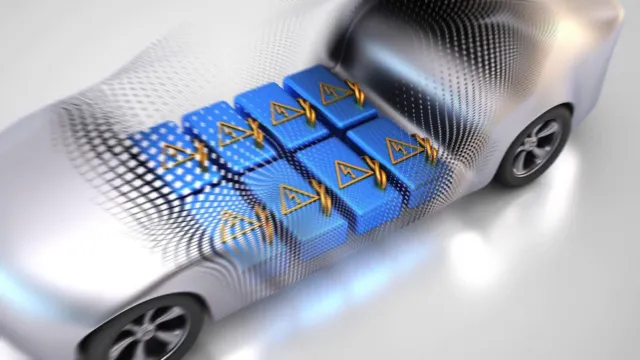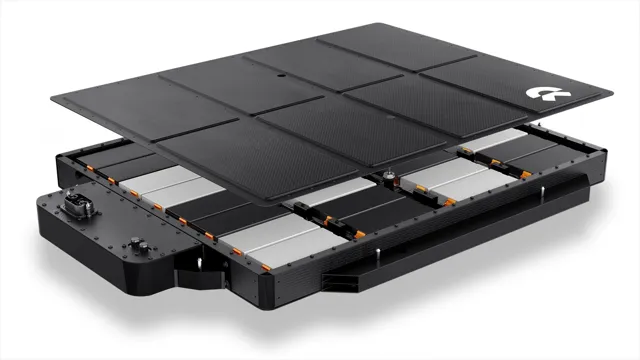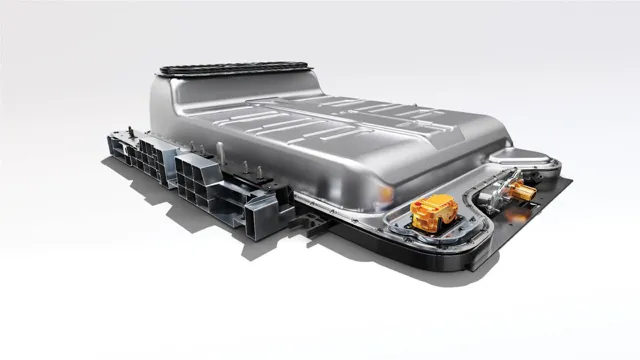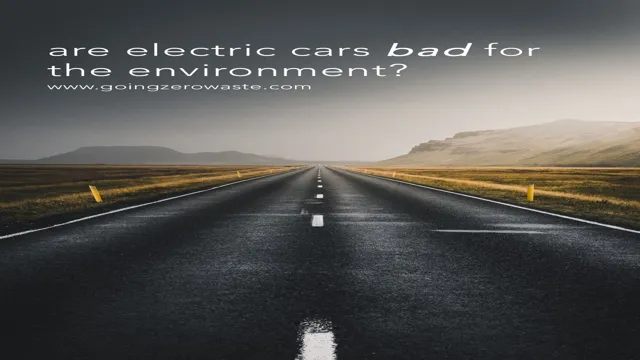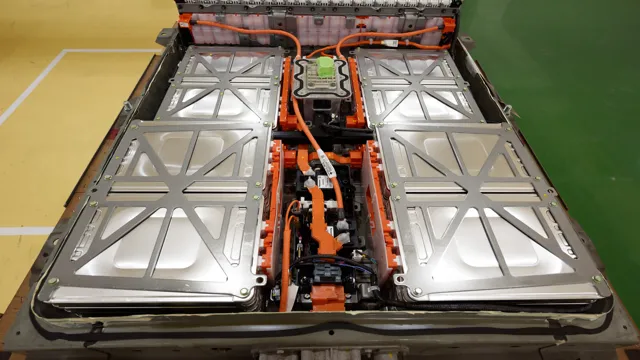Revving up the Future: Exploring the Potential of Used Electric Car Batteries
Electric cars have been a growing trend for some time now, with more and more manufacturers entering the market each year. It’s no surprise, given the numerous benefits electric cars offer, including lower emissions, reduced running costs, and overall driving experience. However, one major question many potential electric car owners frequently ask is, “Are electric car batteries worth the investment?” There’s no denying that electric car batteries are one of the most significant components of an electric car, and they can come with a hefty upfront cost.
But the real question is, are they worth the investment in the long term? One thing to consider is that the cost of electric car batteries has been steadily decreasing over the last decade, meaning that they’re becoming increasingly more affordable to buy and replace. Additionally, electric cars tend to have lower maintenance costs overall, so the expense of the battery is offset somewhat by these savings. Another thing to keep in mind is the environmental benefits of electric car batteries.
Not only do they make driving an electric car possible, but they also contribute to a cleaner environment by reducing emissions and minimizing the reliance on fossil fuels. And let’s not forget the overall convenience of electric cars, as they can often be charged from the comfort of your own home. In conclusion, electric car batteries are a significant investment that comes with upfront costs, but this continues to decrease year after year.
They offer numerous benefits such as lower emissions, lower maintenance costs, and a cleaner environment. Overall, if you’re looking to buy an electric car, investing in a good-quality battery will be worth it in the long term as electric cars are the way of the future.
Understanding Electric Car Batteries
Are batteries from electric cars useful after the car is no longer drivable? Yes, they are! The lithium-ion batteries used in electric cars can still retain up to 70% of their capacity even after they are no longer effective for use in vehicles. This means that these batteries have tremendous potential for being repurposed and used in various energy storage applications. For example, these batteries can be used to store energy generated by solar panels or wind turbines.
They are also perfect for use in small-scale energy storage systems for homes and businesses. In fact, many car manufacturers are already exploring ways to repurpose old electric batteries, and some are even creating business models around battery recycling and repurposing. The second life of electric car batteries is an exciting development, as it not only presents new opportunities for energy storage but also helps provide a sustainable and environmentally friendly solution for disposing of used electric batteries.
What are Electric Car Batteries?
Electric car batteries are the heart of electric vehicles. They are rechargeable battery systems that store energy, which is later used to power the electric motor that propels the car. These batteries are composed of multiple cells, each one consisting of a positive and negative electrode, a separator, and an electrolyte.
The battery’s capacity is determined by the size and number of cells used. Electric car batteries use different chemistries, including lithium-ion, nickel-metal hydride, and lead-acid, among others, to store electrical energy. Lithium-ion batteries are the most popular type used in electric cars due to their high energy density, long life span, and low maintenance costs.
With the rapid development of electric vehicle technology, battery technology has also advanced, resulting in better-performing batteries with faster charging times and longer ranges. In summary, electric car batteries are crucial components of electric vehicles that store electricity to power the car.
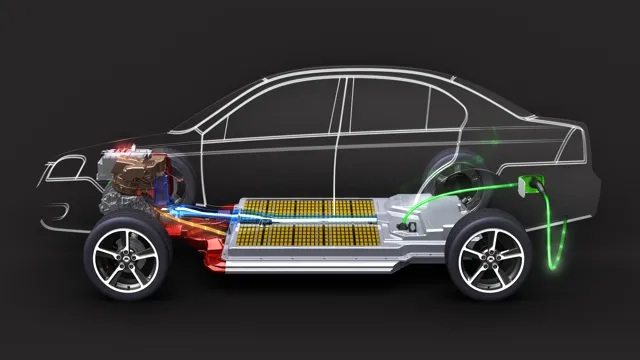
What are They Made of?
Electric car batteries are made up of several key components. The most important of these is the battery pack itself, which contains numerous individual battery cells. These cells are typically made from lithium-ion, which is a lightweight material that is both stable and long-lasting.
Additionally, the battery pack includes a series of electronics that control the flow of electricity between the cells and the car’s motor. These electronics also provide important information about the battery’s charge level and overall health. Other components found in electric car batteries include cooling systems, which help to regulate the temperature of the battery pack, and battery management systems, which help to extend the life of the battery over time.
Overall, electric car batteries are among the most important components of any electric vehicle, and they play a critical role in determining how far the car can travel on a single charge.
How Do They Work?
Electric car batteries are a crucial component for the smooth functioning of electric vehicles. These batteries work by storing electrical energy and providing it to the vehicle’s electric motor. These batteries are rechargeable and utilize a chemical reaction to store and release electrical energy.
The most common type of battery used in electric vehicles is lithium-ion batteries as they are lightweight and have a high energy density. A key advantage of electric car batteries is that they emit less harmful pollutants compared to traditional gasoline-powered vehicles. Moreover, electric car batteries offer an increased range per charge, making them ideal for long trips.
Understanding how electric car batteries work can help you maintain your vehicle’s battery lifespan by efficiently managing the charge and properly planning your journeys.
Pros and Cons of Electric Car Batteries
Are batteries from electric cars worth investing in? As with any technology, there are pros and cons to be considered. One advantage of electric car batteries is their potential to reduce pollution and carbon emissions, making them an eco-friendly alternative to gasoline power. Additionally, electric cars can save drivers money on fuel costs over the long run.
However, there are also downsides to consider, such as the limited range of electric cars and the cost of replacing aging batteries. In terms of the batteries themselves, there is potential for recycling and reuse, but this is still a relatively new field. Ultimately, the decision to invest in electric car batteries depends on personal priorities and circumstances.
It’s important to weigh the pros and cons to find the best fit for your needs.
Pros:
When it comes to electric cars, one of the main features that sets them apart from traditional gasoline-powered vehicles is their batteries. There are several pros and cons of electric car batteries to consider before making the switch. One of the biggest pros of electric car batteries is their efficiency.
Compared to gasoline engines, electric motors are far more efficient and use less energy to produce the same amount of power. This means that electric cars can travel further on a single charge than traditional vehicles can on a tank of gas. Another advantage of electric car batteries is that they produce zero emissions, making them a more environmentally friendly choice.
Additionally, electric cars offer a smoother ride and require less maintenance since they have fewer moving parts than traditional vehicles. On the other hand, electric car batteries also have their downsides, including their high cost and the fact that they can take a long time to recharge. Despite these drawbacks, the pros of electric car batteries make them an increasingly popular choice among environmentally conscious consumers.
– Environmentally Friendly
Electric Car Batteries Electric cars have become increasingly popular in today’s world because they are environmentally friendly and produce lower carbon emissions. Although the batteries are one of the most important components of electric cars, they also have their own pros and cons. The pros of electric car batteries include that they are rechargeable and can power the car for several hundred miles, resulting in lower fuel costs.
Additionally, electric car batteries are pollution-free, which contributes to a cleaner environment. However, electric car batteries also have cons, such as they have a higher upfront cost and a limited lifespan, which means they need to be replaced eventually, resulting in additional expenses. Additionally, electric car batteries require specific disposal methods, which can be problematic if not done correctly.
With that being said, electric car batteries play an essential role in reducing carbon emissions, promoting a cleaner environment and sustainable future.
– Cost-effective in the Long Run
When it comes to electric cars, one of the main considerations that people have is the battery. Electric car batteries have their pros and cons. On the one hand, they are great for the environment, have zero emissions, and are cost-effective in the long run.
This means that the initial investment in an electric car may be higher, but you will save money on fuel and maintenance costs in the long run. However, electric car batteries also have their cons. One of the biggest concerns is the limited range of the battery.
While some electric cars can travel up to 400 miles on a single charge, others can only go about 100 miles. Additionally, the cost of replacing an electric car battery can be quite high, making it a costly repair if necessary. Overall, electric car batteries have both their pros and cons, and it is up to the individual to weigh these factors and decide if an electric car is the right choice for them.
Cons:
When it comes to electric car batteries, there are certainly some pros and cons to consider. On the plus side, electric car batteries are very efficient and easy to charge. This means that you can save money and time on gasoline while also reducing your carbon footprint.
Additionally, electric car batteries can be very quiet and smooth in operation, providing a more comfortable ride. However, there are also some downsides to electric car batteries. The biggest drawback is the cost of replacement.
Electric car batteries are generally more expensive to replace than conventional car batteries, and this can be a significant expense for the car owner. Furthermore, electric car batteries can sometimes be less reliable in cold weather, which can limit their range and performance. Overall, electric car batteries can definitely be a great option for many drivers, but it’s important to weigh the pros and cons carefully before making a decision.
– Expensive to Replace
When it comes to owning an electric car, the most significant expense is undoubtedly the battery. While electric cars have numerous benefits, the cons of their batteries need to be considered before making a purchase. One major drawback is that electric car batteries are costly to replace.
Unlike traditional cars, where you can simply replace a small part of the engine, electric car batteries are integral to the car’s performance, making them much more expensive to fix or replace. However, this drawback is overcome by the fact that electric car batteries typically last a long time, and most manufacturers offer warranties on their batteries. Additionally, the overall cost of owning an electric car is lower due to the significantly reduced fuel expenses compared to gasoline cars.
So while the expense of battery replacement may seem daunting, in the long run, electric cars remain a cost-effective and environmentally friendly option.
– Limited Range
When it comes to the debate surrounding electric cars, one of the most discussed topics is the battery’s limited range. While electric cars are becoming increasingly popular, they still cannot compete with their gas-powered counterparts in terms of range. This can be a drawback, especially for those who frequently take long road trips and do not want to worry about finding a charging station.
However, there are benefits to this limited range. For one, it encourages drivers to be more conscious of their driving habits and plan their trips accordingly. Additionally, it has led to the development of more advanced charging technology and the creation of charging networks.
As battery technology continues to improve, it is likely that the range of electric cars will increase, making them a more viable option for all drivers.
Are Electric Car Batteries Recyclable?
Are batteries from electric cars recyclable? The answer is yes, they are! Electric car batteries are made with a variety of materials, including nickel, cobalt, and lithium, which are all highly recyclable. These materials can be extracted and reused in other industries, reducing the need for new mining and production. The recycling process also helps to reduce the environmental impact of these batteries, which can contain toxic chemicals if disposed of improperly.
As the demand for electric vehicles increases, so does the need for proper battery recycling. There are already companies and facilities dedicated to this process, and with advancements in technology, it is becoming easier and more efficient to recycle these batteries. So, not only are electric cars better for the environment during use, but their batteries can also be recycled to further reduce their impact.
Advancements in Battery Recycling Technology
Electric car batteries are recyclable, and advancements in battery recycling technology have made the process more efficient and sustainable. Not only are the materials in these batteries valuable, but reusing them also reduces the environmental impact of manufacturing new batteries. The first step in the recycling process is dismantling the battery and sorting the components for reuse.
This is followed by a process of pyrometallurgical or hydrometallurgical treatment, which extracts metals such as cobalt, lithium, and nickel from the battery. These metals can then be used to manufacture new batteries. As the demand for electric cars continues to grow, the need for advanced battery recycling technology becomes increasingly important to reduce waste and protect the environment.
Benefits of Recycling Electric Car Batteries
Electric car batteries are recyclable and offer numerous benefits to the environment and economy. In fact, recycling electric car batteries helps to reduce the use of natural resources and greenhouse gas emissions. The batteries contain valuable materials such as lithium, nickel, cobalt, and aluminum that can be recycled and reused in new batteries or other industries such as aerospace and electronics.
Additionally, recycling electric car batteries creates jobs in the recycling and manufacturing sectors, contributing to a circular economy. Imagine your electric car battery being just like a soda can, where it can be recycled and reused to create something new. By recycling electric car batteries, we can reduce waste, conserve resources, and create a sustainable future.
So next time you think about disposing of your electric car battery, remember that it can be recycled and reused to benefit both the environment and economy.
Final Thoughts on Electric Car Batteries
Are batteries from electric cars something to consider for uses beyond powering vehicles? Absolutely! While these batteries may no longer hold enough charge to propel a car, they still have plenty of life left in them for other applications. In fact, many companies are already repurposing used EV batteries to store renewable energy from sources like solar panels and wind turbines. This allows energy to be stored and used later when it’s needed most, rather than being wasted when demand is low.
Additionally, electric car batteries can be recycled once they are no longer usable, reducing the environmental impact of these powerful devices. So, next time you drive an electric vehicle, consider the incredible life cycle of its battery and how it’s contributing to a more sustainable future.
Conclusion
In the end, batteries from electric cars might just be the key to unlocking a cleaner and more sustainable future. They may have started out as a practical solution for powering vehicles, but now they represent a powerful symbol of innovation and progress. As we continue to develop new ways to harness their energy, who knows where they might take us next? One thing is for sure though: they’re definitely more than just glorified AA’s.
“
FAQs
Can batteries from electric cars be recycled?
Yes, batteries from electric cars can be recycled. In fact, many manufacturers have programs in place to recycle these batteries and recover valuable materials.
How long do batteries from electric cars last?
The lifespan of batteries from electric cars varies depending on a number of factors such as usage patterns, environmental conditions, and maintenance. However, many electric vehicle batteries are designed to last for 10 years or more.
Are batteries from electric cars safe?
Yes, batteries from electric cars are generally considered safe. They are designed with a number of safety features such as thermal management systems, venting mechanisms, and shutdown systems in case of a fault.
How much do batteries from electric cars cost to replace?
The cost of replacing batteries from electric cars varies depending on the make and model of the vehicle, as well as the size and type of battery. However, replacement costs can range from a few thousand dollars to tens of thousands of dollars.

